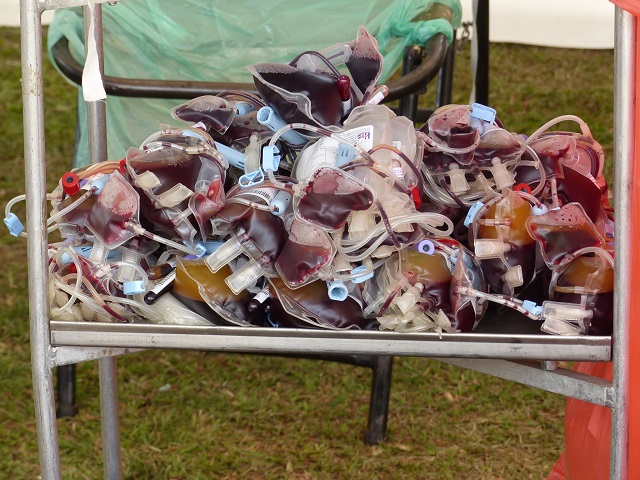
Kampala, Uganda | THE INDEPENDENT | Blood transfusing facilities across the country have increased to 400 from 300 just last year, according to Uganda Blood Transfusion Services (UBTS).
Michael Mukundane, the Coordinator Transfusion services, says the increment has put pressure on service provision and is responsible for fluctuations in blood stocks even during school days when the bank rarely faces shortages.
He says the increase in the demand for blood is also attributed to increased Cesarean deliveries and other elective surgeries, road carnage and of late, the malaria outbreak in Northern Uganda, which has seen hospitals making increased blood requests.
According to Mukundane, each day the team has to go out of their way to find fresh blood, especially for cancer patients to enable them to process enough platelets.
However, at Uganda Cancer Institute, for instance, they, in an earlier interview with URN revealed that with blood shortages, they have had to ration blood. Dr Joyce Balagadde, a Childhood Cancer Expert at the Institute said they have had to disregard the recommended transfusion standards for leukaemia that require patients with a blood count of 20 platelets to be transfused and now wait for the count to go to the lows of 10 platelets before transfusion is done.
The same hard decisions are desperately made by doctors elsewhere like at the Renal Unit of Mulago, the in-charge Dr Peace Bahashe said they only get 10 of the 15 units they need every day and as a result, some patients end up skipping their weekly procedures. The blood bank, Mukundane said is aware of the risk the shortage of blood poses and are now innovating to ensure that the stocks increase.
Among what they are doing is going to non-school going communities calling upon people of 17 to 65 years to donate blood and also partnering with corporate companies who are requested to include blood donation drives as part of their yearly calendar.
However, blood donation services are entirely funded by the government of Uganda after the U.S. President’s Emergency Plan for AIDS Relief (PEPFAR) pulled out last year something that affected the entity leading to widespread stock-outs.
Mukudane says even though government funds are far low compared to what they were getting from donors, they have trimmed their programming appropriately to ensure that blood needed for each day is got.
But, even before the blood demands were still a bit low, Uganda couldn’t beat the World Health Organisation recommendation of collecting blood equivalent to 1% of the population. Last year, the blood bank collected 260,000 units of blood only.
*****
URN
 The Independent Uganda: You get the Truth we Pay the Price
The Independent Uganda: You get the Truth we Pay the Price


